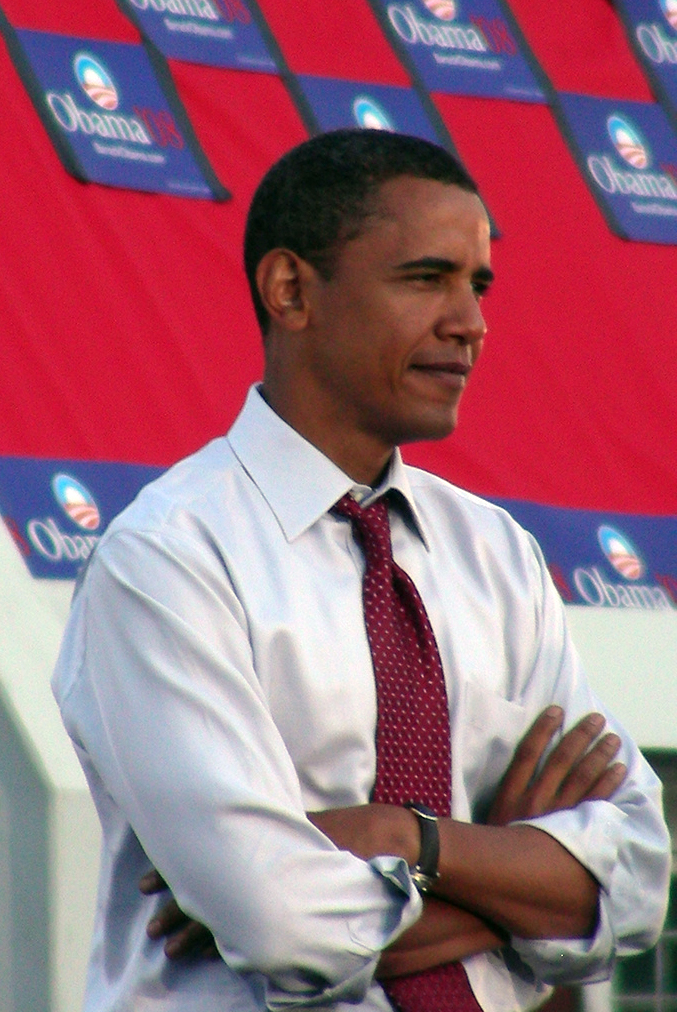
Others will weigh in with forecasts for Obama’s running mate for the five-month run to November. We're on record about why Clinton will absolutely not do for a vice-presidential running mate (despite her alleged advantage with white women voters, an advantage that may not even exist). Any number of worthies are out there; we venture that one pairing gives Obama the best strategic advantage over John McCain, the presumptive Republican nominee:
Barack Obama and James Webb in 2008. That’s the Democratic ticket, and if it’s not it oughta be. Here’s why:
An Obama-Webb ticket would reflect more of the kind of smart political counterprogramming Team Obama has displayed throughout the primary season. With the Virginia senator on the ticket, Obama is mended in the weak places on matters related to national security and the Iraq war; his campaign acquires the gravitas of someone with previous understanding of the workings of the White House.
◊ ◊ ◊
Webb’s status as a former Marine and Secretary of the Navy (in the Reagan administration) counters McCain’s boots-on-the-ground military experience with his own compelling personal narrative of life during wartime. Decorated several times — he won the Navy Cross and the Silver Star, among other decorations — Webb introduced a bill increasing financial and educational benefits for military benefits, a bill would effectively update the Montgomery G.I. Bill to provide today’s veterans with the same benefits enjoyed by veterans from World War II (the original bill was enacted in 1944).
McCain’s current opposition to the Webb legislation seriously compromises the GOP's solidity of what’s been to now an issue the Republicans owned: military affairs. With Webb aboard, the Obama campaign may be able to put in play states like Florida, home to 110,000 U.S. military personnel from every branch of the service. And Webb’s pragmatic approach to American military might — that it be used judiciously as well as emphatically — gains weight by virtue of his having actually “borne the battle,” unlike the current commander-in-chief or the vice president.
Certain of Webb’s positions — pro-gun ownership, support for tighter immigration policies — run against the prevailing popular assumptions of Democratic party thinking, a fact that could prompt Reagan Democrats to give an Obama-Webb tandem a second look.
Webb’s status as a former Reagan Republican puts teeth in the Obama campaign’s call for a change in the reflexively bipolar attributes of American government. It would force McCain to react with something similar to reach across the traditional aisles of party and politics — something that would prove whether McCain’s Maverick® branding really means anything politically.
◊ ◊ ◊
Much of why Obama-Webb makes sense has less to do with policy than with what their combined biographies say about this nation. Webb’s status as a well-regarded novelist, memoirist and historian dovetails nicely with Obama’s own celebrated literary status.
 Four of their 10 combined books explore their political views, and their own personal and ancestral origins, and how they weave into the wider American story.
Four of their 10 combined books explore their political views, and their own personal and ancestral origins, and how they weave into the wider American story. This scholarship, this ability to articulate their rationales for changing the nation based on both personal and American history, yields a blend of intellects uncommon in recent American politics — something that independent voters would likely find refreshing (especially given what we’ve had for the last seven years).
And an Obama-Webb ticket represents what could be a great American pivot, a profound break from the national preoccupation of race. With Obama (the son of a Kenyan father and a white mother) paired with Webb (one of the 5.3 million Scots-Irish Americans who form the population backbone of Appalachia, a region meandering from Pennsylvania to Georgia), the potential exists for a perhaps unprecedented consolidation of African American voters and rural white working-class voters — one based on common interests, rather than common fears. That kind of coalition could largely dismantle the GOP’s persistent, corrosive “Southern strategy.”
Webb more than hinted at such possibilities on MSNBC’s “Morning Joe” on May 21: “Black America and Scots-Irish America are like tortured siblings. They both have long history and they both missed the boat when it came to the larger benefits that a lot of other people were able to receive. There’s a saying in the Appalachian mountains that they say to one another, and it’s, “if you're poor and white, you're out of sight. …”
“If this cultural group could get at the same table with black America you could rechange populist American politics, because they have so much in common in terms of what they need out of government.”
Obama-Webb 2008. It’s the Democrats’ best, least fractious opportunity to combine Change and Experience. A chance to heal the breach between the United States and the Middle East. To make fuller use of the nation’s soft power, while not ignoring the need for more nuanced use of direct force — when it's necessary, not when it's convenient. To begin to narrow the canyon between the races, one that has yawned before this nation for far too long.
-----
Image credit: Obama: realjameso16, republished under Creative Commons Attribution 2.0 license.






No comments:
Post a Comment